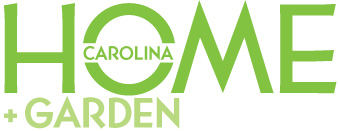Workshop shows how to turn an invasive grass into paper
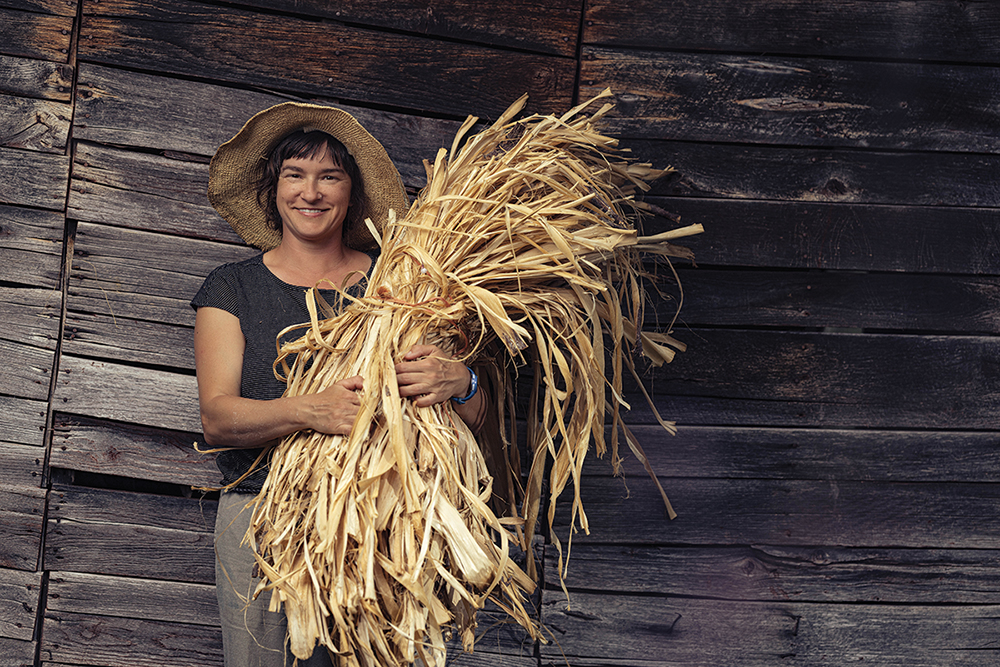
Paper artist Alyssa Sacora makes pulp for paper from various natural materials on her farm Patchwork Underground.
Photo by Jack Robert
Where gardeners and landscapers see a menace, Alyssa Sacora sees opportunity. Rather than do battle against invasive plants, Sacora makes use of them — a skill she will demonstrate late this summer in a workshop at the North Carolina Arboretum. During “Papermaking with Invasive Species,” Sacora will show how to turn the common invasive stiltgrass (Microstegium vimineum) into a utilitarian item. The raw material for the workshop comes from the Arboretum’s azalea garden, from where the stiltgrass has been weeded out.
“We’ll make sheets of paper from each plant pulp, and we’ll also work with these pulps combined with cotton, from old clothes,” explains Sacora, whose day job is running her own farm and community studio, The Patchwork Underground, in Fairview.
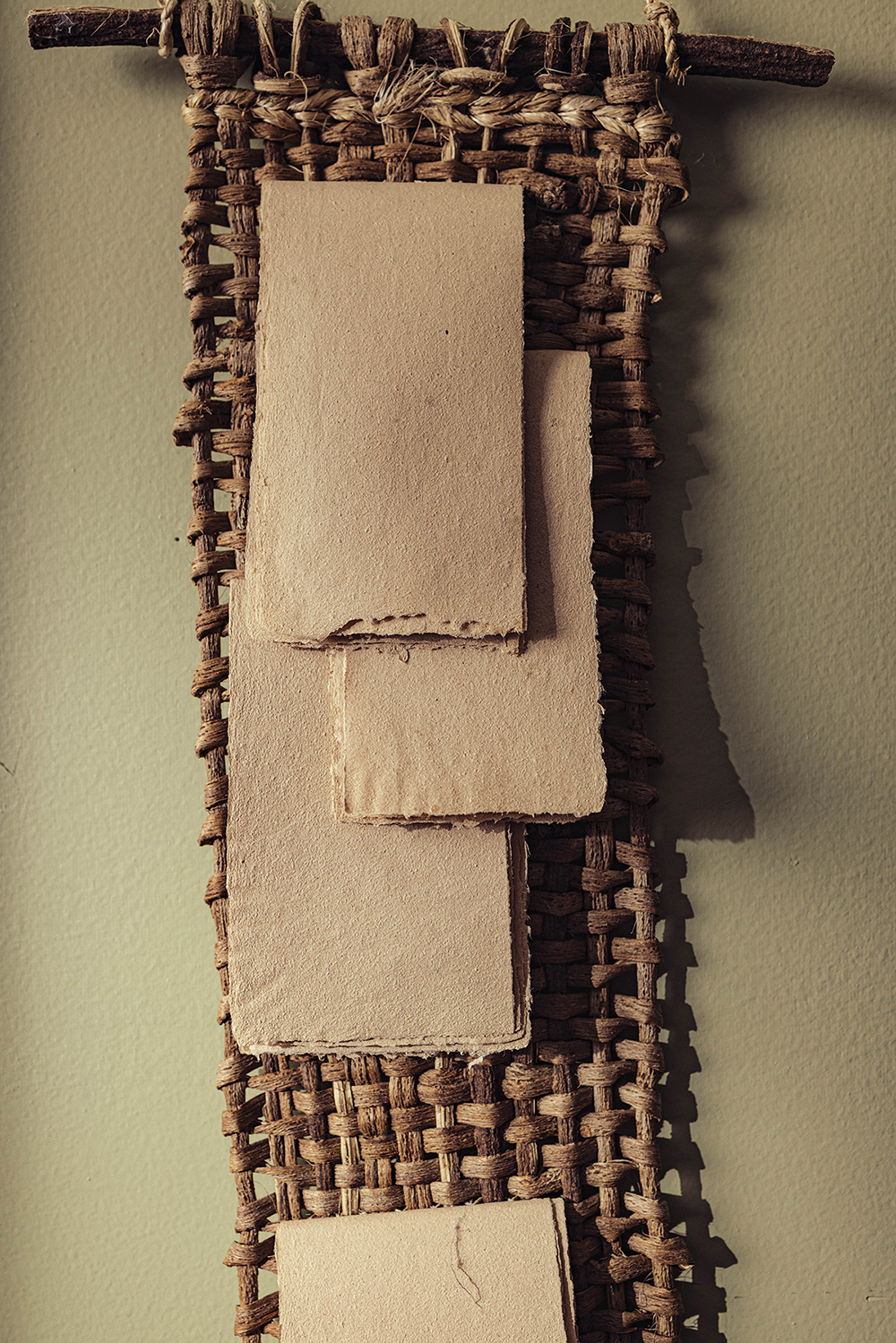
Photo by Jack Robert
“I come from a line of folks who tended the land, and used available materials for creative exploration and necessity,” says Sacora. “I want to improve the health of this place,” she says of her Fairview land and gardens, “rather than just sustain it.”
Sacora has long been familiar with stiltgrass, also known as packing grass or Nepalese browntop. It arrived in the United States via the Shenandoah Valley, where she grew up. It was used as packing material for Chinese porcelain shipped to Tennessee in the early part of the last century, and is now common throughout most of North America.
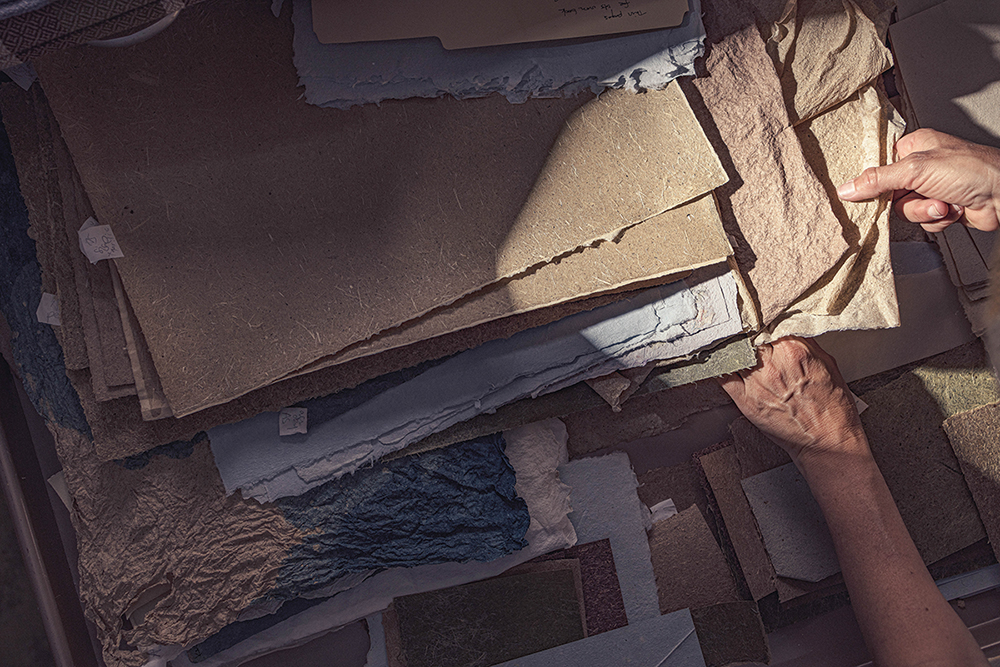
Photo by Jack Robert
“I like the combination of plant-plus-cotton to make papers that are versatile for writing and drawing and other crafts,” she says. “My incorporation of old linens ties me to the first papermakers and the papermakers of historical Europe, where my ancestors are from. The resulting paper can be decorative as well as functional.”
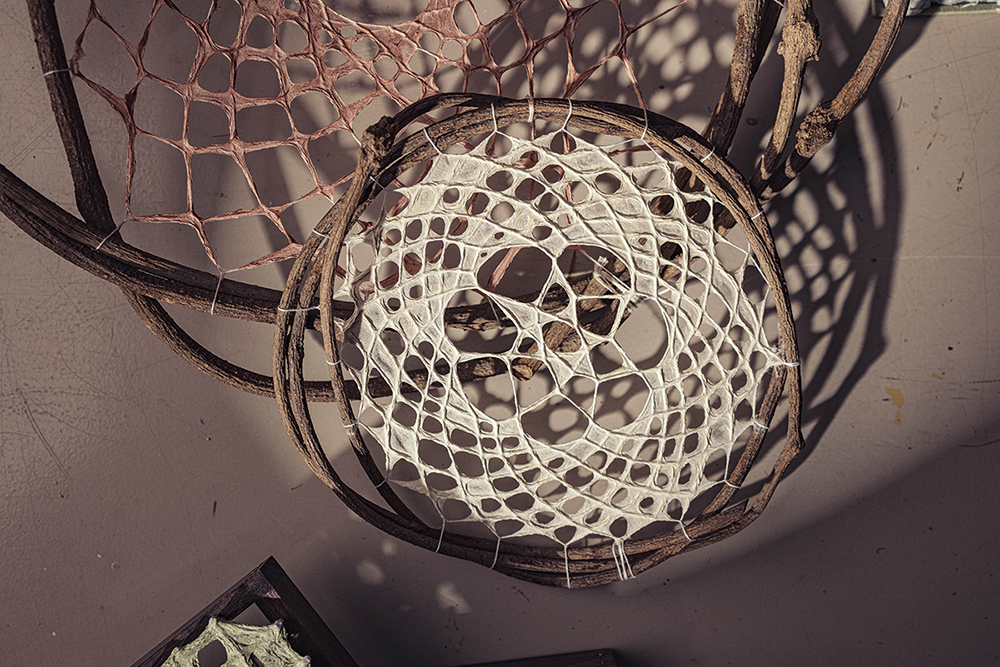
Photo by Jack Robert
Participants will learn how to reduce plants to their basic lignin fibers, process those fibers into a pulp, and use screens to dry the pulp and form paper sheets. It’s a labor-intensive, messy process. “Folks are encouraged to bring a water-resistant apron and shoes, their favorite sharp scissors, and a change of clothes for afterward,” Sacora says. “I want folks to have an immersive workshop experience surrounded by plants and the elements, and I want to provide an opportunity for folks to explore craft in a supportive environment that connects them to the materials they’re working with.
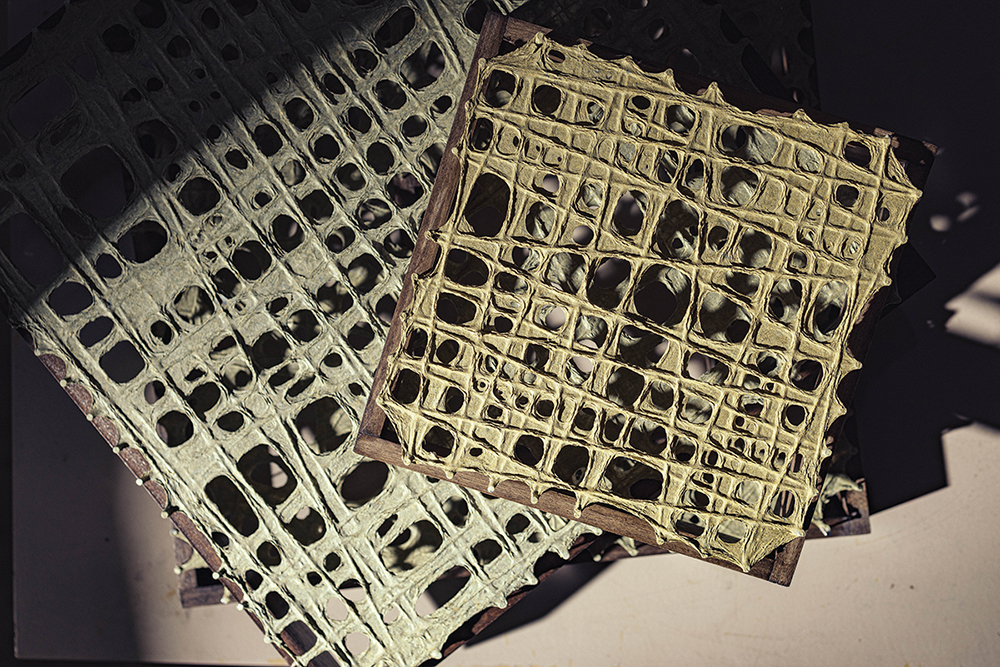
“Sharing the land and my skills with others is how I contribute to shifting modern culture to be more aware of community wellbeing.”
Alyssa Sacora’s “Papermaking with Invasive Species” workshop will be held Saturday, Sept. 21, 10am-4pm at the North Carolina Arboretum (100 Frederick Law Olmsted Way, Asheville). Sacora will provide all plant and textile materials. For more information, see the “Adult Education” link at ncarboretum.org and patchworkunderground.com.
